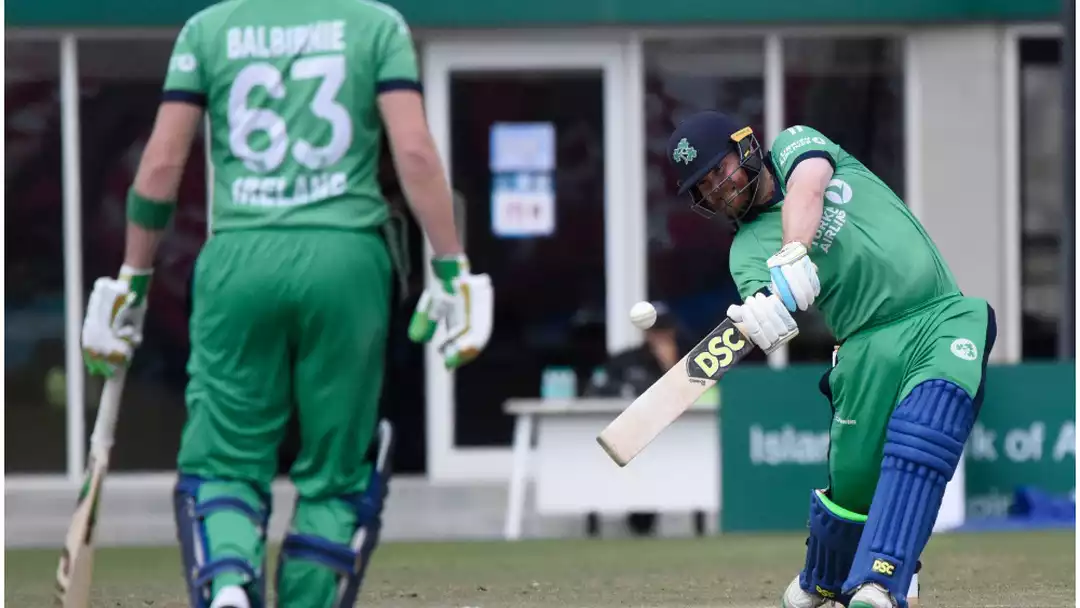In the realm of Irish sport, very few individuals generate as much curiosity and fascination as the gaffer. Andy Farrell, the amiable native of Wigan who holds the position of head coach for the immensely accomplished men’s rugby squad, is highly esteemed. The passing of Jack Charlton, the manager of Ireland’s national soccer team during their triumphant 1990 World Cup campaign, elicited tremendous grief and sorrow. The prolonged quest for a head coach for the men’s football team, which has now extended to seven months, is a source of national shame in present times.
Cricket, due to the increased significance of the captain, is not as conducive to the idolization of the head coach. However, among Irish circles, there is still some debate regarding the individual responsible for leading the country’s cricket team.
The Irish cricket team is quite tiny, consistently striving for recognition domestically and internationally. Being a budding professional game that relies on amateur club institutions, which need to be gradually convinced to modernize, the sport naturally leads to skepticism towards individuals from outside this distinctive system. Certain individuals excel more than others in establishing public trust.
Heinrich Malan, a former professional cricketer from South Africa who gained coaching experience in New Zealand’s domestic system, remains relatively unfamiliar to the general public after two years as Ireland’s head coach. Success, however, serves as a means to connect and overcome all differences. The successful T20 World Cup in 2022, coupled with a recent Test win, brought great joy to both fans and Malan’s employers. Prior to the current World Cup, he received a contract extension despite having 12 months remaining on his existing agreement. He has secured the role until the 2027 ODI World Cup.
As Ireland gets ready to compete against India in New York this week, there is little doubt that this is the most well-prepared an Irish team has ever been leading up to a T20 World Cup. Malan has significantly influenced the team’s culture and, thus, their prospects of success in T20 with his significant contributions to enhancing professionalism.
18 months ago in Australia, the unexpected triumphs over Scotland, West Indies, and England took place. Now, the current discussion before the event is centered on Ireland’s potential to cause an upset against Pakistan and secure a spot in the Super Eights, despite the unfavorable historical record for Ireland in this format. In the T20 format, such discussions were previously limited to ambitious murmurs, rather than being publicly announced in the nation’s newspapers.
Clarity is the word that best characterizes Malan’s approach. “The purpose of that blueprint is to establish a clear and precise communication approach,” he explains regarding his coaching philosophy. “Our players desire us to provide explicit instructions regarding their conduct when they step onto the field.” There are instances when they adhere to a specific style of play, and we will question that. Similarly, there are instances when they deviate from that style, and we will also question that. The main objective is to establish clarity above all else.
The concept of clarity may appear obvious, but its absence is only truly evident in retrospect. Upon assuming leadership in 2022, Malan inherited an Irish team that had just experienced a poor 2021 World Cup campaign, culminating in a catastrophic loss to Namibia. Graham Ford, Malan’s predecessor, stepped down as a result of the aftermath of that surprise, as well as the challenges of coaching a country with few facilities and resources.
A consulting firm conducted a thorough analysis of that campaign, revealing a clear demonstration of uncertainty and a lack of professionalism inside Ireland’s systems. As a result of part-time arrangements, Ford occasionally served as the sole senior coach for men on the island. The review, which has gained notoriety, described the backroom team as having “uncertainty regarding resources, which affected the clarity of roles and accountability among the coaching staff.”
Uncertainty was also there in the selection of the playing XI. An inexperienced team was uncertain about the possibilities available for taking shots, which resulted in a lack of ability to consistently score boundaries needed for success in T20 cricket. Put simply, the review requested a more aggressive approach to batting during overs 7-20.
Ireland recently achieved an undefeated record in a tri-series with Scotland and the Netherlands, both of which have a comparable pool of talented players. Additionally, Ireland managed to score 175 or more runs in three straight matches against Pakistan.
Players have developed a heightened understanding of their assigned responsibilities and the strategies they need to employ in order to achieve success. Andrew Balbirnie, previously positioned at number three in the batting order during the 2021 World Cup, suddenly assumes the role of opening batsman. Wicketkeeper Lorcan Tucker, not in the XI then, is now the vice-captain and bats at three. Harry Tector has moved up from six to four and is starting to see his T20 form inch closer to his ODI exploits. George Dockrell is back in the XI as a destructive middle-order power hitter. Gareth Delany has moved down from number four to leg-spinning all-rounder.
